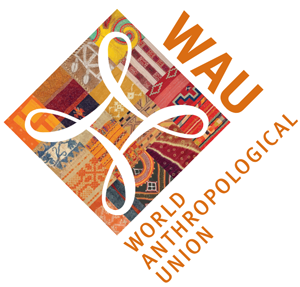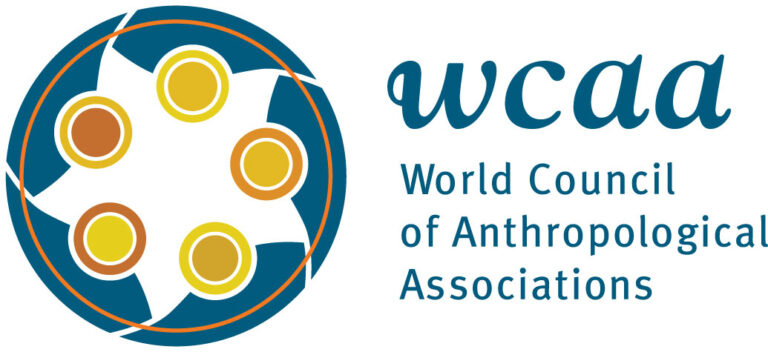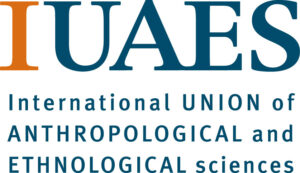日本語で人類学をするということ、2017
浜田 明範
関西大学
「自分の言葉で」のなかで、エドゥアルド・レストレポ(Eduardo Restrepo)氏は、「Buenas intenciones y mala conciencia en el campo antropológico trasnacional.」 というスペイン語の記事を書いている。日本語に翻訳するならば、「国際的な人類学における善意とやましさ」とでもなるだろうか。このエッセイでは、「人類学の世界システム」について述べられている。人類学をすることには複数のあり方があるだけでなく、それらの人類学の間には、中心と周辺があるのだという。
確かに、日本語を母語とする者が日本語で人類学を行う場合、それが英語圏の読者に届くには障害があるだろう。とはいえ、このことは日本で人類学が盛んでないということを意味するわけではない。日本文化人類学会が1935年に一巻一号を刊行した学会誌は、現在年に4回出版されているし、年に数冊の民族誌が継続的に日本語で出版されている。著者たちのいく人かはフランス語やスペイン語やポルトガル語やロシア語や中国語などを解するとはいえ、著者たちは、基本的に英語で読んで、現地語で調査をし、日本語で書いてきた。
他方で、日本語で人類学をすることによって、多くの読者を獲得できてこなかったこともまた事実である。海外の人類学者から、「日本語が話せるのであれば日本について調査すればいいのに」と言われたという冗談のような話が日本の人類学者のあいだで話題にのぼることも少なくはなかった。このような状況を打破するために、日本文化人類学会では、1998年よりJapanese Review of Cultural Anthropologyという英文雑誌(http://www.jasca.org/index-e.html)を年に1回のペースで発行してきており、2016年からは年に二回の発行に増やしている。
将来的には、このような言語障壁は、20世紀や21世紀の歴史的拘束とされるかもしれない。すべての人が同意しないかもしれないが、ビッグデータとディープラーニングの発展によって人類学者同志だけでなく、人類学者とフィールドの人々の間にある言語障壁を溶解するだろう。あるいは、その時には、AIが人間よりも賢くなるシンギュラリティが訪れ、人類学が終焉するのかもしれない。しかし、これはSFのような想像に過ぎないし、別のタイプの人類学が生まれることもあろう。
いずれにしても、私たちは、多くの人類学者を招聘し、国際シンポやワークショップを組織してきた。私たちはまた、古典的なマリノフスキーやエヴァンズ=プリチャードから、マリリン・ストラザーン、ヴィヴェイロス・デ・カストロ、エドゥアルド・コーン、アドリアナ・ペトリーナ、フレデリック・ケックなどの最近の著作まで、多数の人類学者の著作を英語だけでなくフランス語やポルトガル語などからも翻訳してきた。だから、日本の人類学が孤立してきたわけではまったくない。これらの実践を通じて、私たちは、異なる伝統の人類学と交流し、それらから学ぶだけではなく、哲学者や歴史学者、社会学者や医師といった異なる学問領域の学者に紹介もしてきた。この点は強調されるべきである。多くの日本の人類学者は英語を読むが、人類学的思考の可能性は人類学に限定されるわけではない。にもかかわらず、他の分野の多くの研究者は人類学を原語で読むことはない(多くの人類学の本が人類学者以外によって翻訳されてきたことも指摘しておく)。そのため、日本語で人類学をすることには独特の意味がある。私たちが、人類学の世界システムについて考える際には、他の分野との関係も考慮すべきだろう。
このような翻訳のメリットは一方向的ではない。日本の人類学者は、哲学、社会学、歴史学、文学、生物学、STSの翻訳からも多くのことを学んできた。日本には、複数の言語からの翻訳の伝統があるので、日本の人類学は脱領域的な傾向を持っている。もちろん、日本の人類学は、日本独自の伝統にも根ざしている。柳田民俗学や哲学の京都学派といった古典的な研究や、京都大学を中心とした霊長類学と生態人類学の長い伝統がそれである。このように、日本の人類学は異なる伝統の独特の配合として理解できる。それが、他の人類学とどのように異なっているのかは、この企画を通じて明らかにしていきたい。
この状況を鑑みて、また、私たちの特徴を明確にするために、私たち(日本における共編者である私と里見龍樹氏と難波美藝氏)は、このスペースで、日本語で書かれた人類学の著作を日本語と英語の両方で紹介することにした。この戦略は従属ではない。私たちは多くの著作を書いてきたし、それは紹介されるに値すると考えているが、日本語だけで書いた記事は日本人にしか読まれない。私たちはこれを望んではいない。このスペースの精神を尊重して、まず日本語を載せ、次に英語を掲載することにする。
ラインナップは未確定ではあるが、記事は主に、最近出版された若手の人類学者の本や記事についての、著者による紹介によって構成される。一連の記事を通して、日本の人類学の豊富さと独自性を紹介できれば幸甚である。
Practicing Anthropology in Japanese Language in 2017
Akinori HAMADA
Kansai University
In this space “In one’s own terms”, Dr. Eduardo Restrepo contributed an essay titled ‘Buenas intenciones y mala conciencia en el campo antropológico trasnacional’ in Spanish. The title may be translated into Japanese as “Kokusaitekina jinruigaku ni okeru zenni to yamashisa”. This essay outlined a world system of anthropology. According to the essay, there are not only plural ways of practicing anthropologies but also center and periphery among such international anthropologies.
It is apparent that anthropological literature written in Japanese rarely reaches English-speaking readers. However, this “invisibility” of Japanese anthropology does not mean there is no anthropology in Japan. Japanese Society of Cultural Anthropology (JASCA) published its first Japanese journal in 1935 and this journal, Japanese Journal of Cultural Anthropology is to date still published four times a year. Furthermore, about ten ethnographies written in Japanese are published every year. Basically, authors of these writings read publications in English, research in vernacular, and write an ethnography in Japanese. This is a typical custom of Japanese anthropologists since some authors can read other languages, such as French, Spanish, Portuguese, Russian, Chinese and more.
Nevertheless, as I mentioned above, these Japanese writings acquire less readers than English ones. We sometime hear stories about the invisibility of Japanese anthropology and the stereotypical image of Japanese anthropologists who only research in Japan. To break free from this misunderstandings, in 1988 JASCA started publishing its English journal, Japanese Review of Cultural Anthropology(http://www.jasca.org/index-e.html), and has published it twice a year since 2016.
In the future, this linguistic barrier might be considered as a historical constraint of the 20th and 21st centuries. Perhaps not everyone will agree with me, but I wonder if the development of big data and deep learning will help dissolve any linguistic barriers not only from anthropologist to anthropologist but also from anthropologists to people in the fields. This may possibly occur with the advent of the technical singularity, when AI becomes wiser than human beings and tells us of the end of a kind of anthropology. But, for now this is just an SF-like imagination and it may be that different types of anthropologies will emerge.
In any case, over the years we have organized a number of international symposia and workshops in Japan and invited many overseas anthropologists. We have also translated many anthropological writings, from classical works of Malinowski and Evans-Prichard to recent publications of Marilyn Strathern, Eduard Viveiros de Castro, Eduard Cohn, Adriana Petryna and Frederic Keck and more, from English as well as French, Portuguese and other languages. Therefore, in this light, Japanese anthropology is not isolated. And through these practices, we have not only interacted with and learned from anthropologies with different traditions, but also introduced anthropological scholars to Japanese scholars from other disciplines, such as philosophy, history, sociology and medical science.
Emphasis should be put on the previous point. Although most Japanese anthropologists read in English, the possibilities and significances of anthropological thought are not limited to anthropology alone. However, most scholars from other disciplines do not read anthropological literature in original languages (we should also emphasize the fact that non-anthropological scholars have translated many anthropological books too). Therefore, practicing anthropology in Japanese has distinct value. When we think about the world system of anthropology, we should take into account the relationships with other disciplines.
The merit of translation is not one-way. Japanese anthropologists also learn from many translated books in the fields of philosophy, sociology, history, literature, biology and STS. Because Japan has a rich tradition of translation from many languages, Japanese anthropology is by nature inter-disciplinary. Of course, Japanese anthropology depends on unique academic traditions developed in Japan such as classical studies of folklore of Yanagita and the Kyoto school of philosophy, and a long tradition of field primatology and ecological anthropology at Kyoto University. Therefore, it could be said that anthropology in Japan is a unique mixture of many traditions that I hope will be presented in this space.
With this revealing of the current situation of anthropology in Japan, and aiming to make clear our originality, we (I, Ryujyu SATOMI, and Miki NAMBA as co-editor for Japanese) have decided to introduce anthropological works written in Japanese in both Japanese and English (or other European languages) in this space. This strategy is not intended to be subordination. Many works have been written in Japanese and we believe these deserved to be seen, but if we leave them in Japanese only, the articles are likely to be read by Japanese only. This is not the situation we would desire. In respect to the spirit of this space, we will present Japanese language version first, and the other language version second.
The articles are intended to introduce the works of young Japanese anthropologists. The content is still under consideration for now. Through this series of articles, we wish to introduce the richness and uniqueness of Japanese anthropology.



